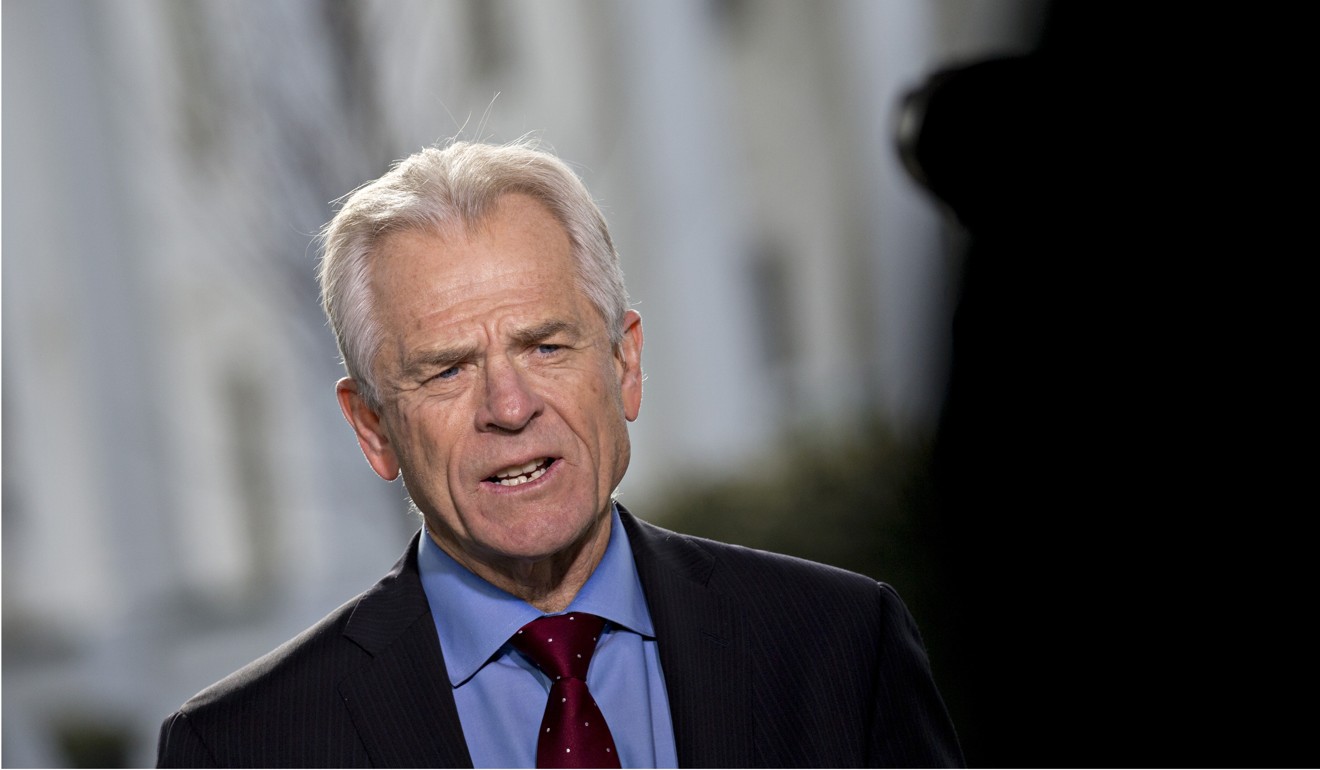
US-China breakthrough at G20 meeting is unlikely since tensions go beyond trade, analyst says
- ‘If the two sides agree to anything, it will be partial and short-lived because it’s not just about tariffs,’ said Anne Van Praagh of Moody’s
- The firm, which tracks geopolitical risks globally, also cut its estimate of China’s growth rate in 2019 to 6 per cent from 6.7 per cent this year
The US and China are not likely to walk away from the Group of 20 summit meeting in two weeks with a deal on tariffs as the tensions between them go well beyond trade, Moody’s Investors Service said on Thursday in New York.
US President Donald Trump and his Chinese counterpart, Xi Jinping, are expected to meet on the sidelines of the summit in Buenos Aires, Argentina, which begins on November 30.
Moody’s, a New York-based ratings analysis firm that tracks geopolitical risks globally, expects the strain between the world’s two largest economies to escalate. Specifically, Moody’s analysts said they saw the 10 per cent tariffs on US$200 billion of Chinese goods increasing to 25 per cent on January 1.
“We don’t expect much breakthrough at G20,” said Anne Van Praagh, managing direct of the global credit strategy and research unit at Moody's. “If the two sides agree to anything, it will be partial and short-lived because it’s not just about tariffs. It’s about geopolitical tensions around a rising China that is challenging to the US.”
So far, preparation for talks between officials from the two countries haven’t shown much progress. The discussions are designed for the two sides to come up with a framework that Trump and Xi can agree on at their G20 meeting.
An initial attempt by China that outlined some potential concessions to the Trump administration was not received positively by their US counterparts, according to news reports on Thursday.
The Chinese draft fell short of the type of major structural reforms that Trump has been demanding, said a Bloomberg report that cited anonymous sources, indicating that a long road in trade negotiations still lies ahead. The news led to increased doubts about how substantive a deal Trump could make with Xi, echoing the Moody’s analysts’ view.
As a result, Moody’s further cut its estimate of China’s growth rate in 2019 to 6 per cent from 6.7 per cent this year.
The firm wrote in an August report that the tariff measures “are expected to shave up to 0.3 to 0.5 percentage points from China's real GDP growth in 2019.”
That figure factored in expected stimulus by the Chinese government to invigorate the economy in the face of the trade war. The measures can include further tax subsidies, easing bank reserves requirements to encourage lending, as well as incentives for domestic consumer spending. In recent months, China has already paused deleveraging efforts that could help the economy to grow through debt.
“We expect a significant slowdown from China next year,” Atsi Sheth, managing director of Moody's credit strategy and research team, said on Thursday. “Should the trade war expand to investment, tech, as well as other restrictions of Chinese investment into US technology, that is going to impact growth.”
Much of the risk is caused by the escalating tensions resulting from the trade war. Since July, Trump has imposed tariffs on US$250 billion worth of Chinese goods and has since threatened to slap more duties on an additional US$267 billion in products and services.
The US hopes the tough stance will force Beijing to change its trade practices, which Trump has repeatedly called “unfair”.
After an extended stalemate over the summer, the two sides began to engage again in recent weeks, spurring hopes that an agreement might be on the horizon.
Two weeks ago, speaking at a rally in Missouri, Trump appeared to change his tone toward China, saying that “great things are going to happen over the next short period of time”.
“I spoke to President Xi,” he told the crowd. “Great guy, great man from China. And he is the boss. He’s the head of China. We spoke and I said: ‘Look, we have to make a fair trade deal’.”
Although observers were sceptical that the two leaders could reach a substantive deal addressing the fundamental issues fuelling the trade war, they said the G20 meeting was an opportunity for de-escalation. Some also suggested that continuing to challenge China on intellectual property theft would squash the prospect of a long-term deal.

Carla Hills, US trade representative from 1989 to 1993 under George H.W. Bush is with the sceptics on the likelihood of a substantive breakthrough at G20.
“I am pleased that at the end of this month, President Trump and President Xi will meet in Argentina, yet realistically we all know that periodic, high-level meetings alone will not be sufficient to rebuild a strong and productive relationship between our two great nations,” Hills said at the National Committee on US-China Relations annual gala in New York on Thursday.
“As a Chinese proverb reminds one beam, no matter how big, cannot support an entire house on its own,” Hills added.
Although US trade adviser Peter Navarro – known for encouraging Trump to wage the trade war – has been sidelined by the White House, according to a CNBC report on Thursday, the move was not expected to affect the prospects for a deal in the near future.
While Trump has focused his rhetoric on the trade deficit between the two countries, his administration is also pushing Beijing to abandon its “Made in China 2025” programme, its ambitious initiative for global domination in technology and innovation. Many believe that is something China will not compromise.
“The US China tensions run deep,” Van Praagh said. “It will be something we live with for years to come. It took 40 or 50 years to get us here. It's not something that we can undo overnight.”

